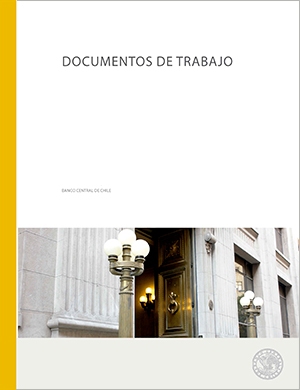Working Papers N°149: Una Revisión de la Transmisión Monetaria y el Pass-Through en Chile
Publications
Working Papers N°149: Una Revisión de la Transmisión Monetaria y el Pass-Through en Chile
Autor: Carlos J. García
Description
First, this paper reviews the most important literature based on money VAR, which explains monetarytransmission mechanism and pass-through from depreciation to inflation in Chile and other countries. The focus is on (i) the length of the transmission lags from monetary policy to prices; (ii) the impact of monetary policy on output and real exchange rate; and (iii) the magnitude of pass-through coefficient. Second, we estimated four VAR models for the Chilean economy: three of them have short-run restrictions (SVAR) and the other one has long-run restrictions (VEC). Our estimations are different from other studies since we use an adjusted interest rate to consider the episodes of 1998, where the interbank interest rate was substantially higher than the monetary policy rate (MPR) announced by the Central Bank. This allows us to obtain a more precise identification of the monetary policy, thus the impact of this policy on prices and output was much lower than the effect found by other authors. Therefore, the monetary-transmission mechanism is characterized as follows; given a 100 basis points shock to interest rate during a quarter, inflation rate decreases by –0.2%, output by –0.4%, and there is a temporary appreciation of the real exchange rate by 0.4%. Additionally, monetary policy reaches its maximum effect between a year and a year and a half. On the other hand, pass-through coefficient turned out to be low and close to 18% after two years.
Working Papers N°149: Una Revisión de la Transmisión Monetaria y el Pass-Through en Chile
Boxes and graphics

